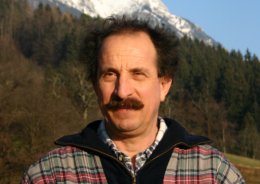The Effects of War on Individuals and Groups - Finding Hope in the Midst of Destruction
Small Steps and The Peace Academy, with support from Religions for Peace Multireligious Humanitarian Fund, invites you to an online training: “The Effects of War on Individuals and Group(s) - Finding Hope in the Midst of Destruction.” The training’s two lead trainers and guest are experienced peacebuilders and psychotherapists who have lived through the war in Bosnia and Herzegovina and Croatia.
A grant provided for this training allows all participants to join free of charge.
If you are from Ukraine or are an Ukrainian refugee, would like to learn the impact of trauma on an individual and group levels, and are seeking ways to help yourself and others address trauma and embark on the process of healing, please apply!
Deadline for reserving your place in the training is 3rd of October, 2022.
The training will be held online, via Zoom, in English.


 We are deeply saddened to hear the news that our colleague, long-time instructor in the Summer Peace Academy and friend,
We are deeply saddened to hear the news that our colleague, long-time instructor in the Summer Peace Academy and friend, 